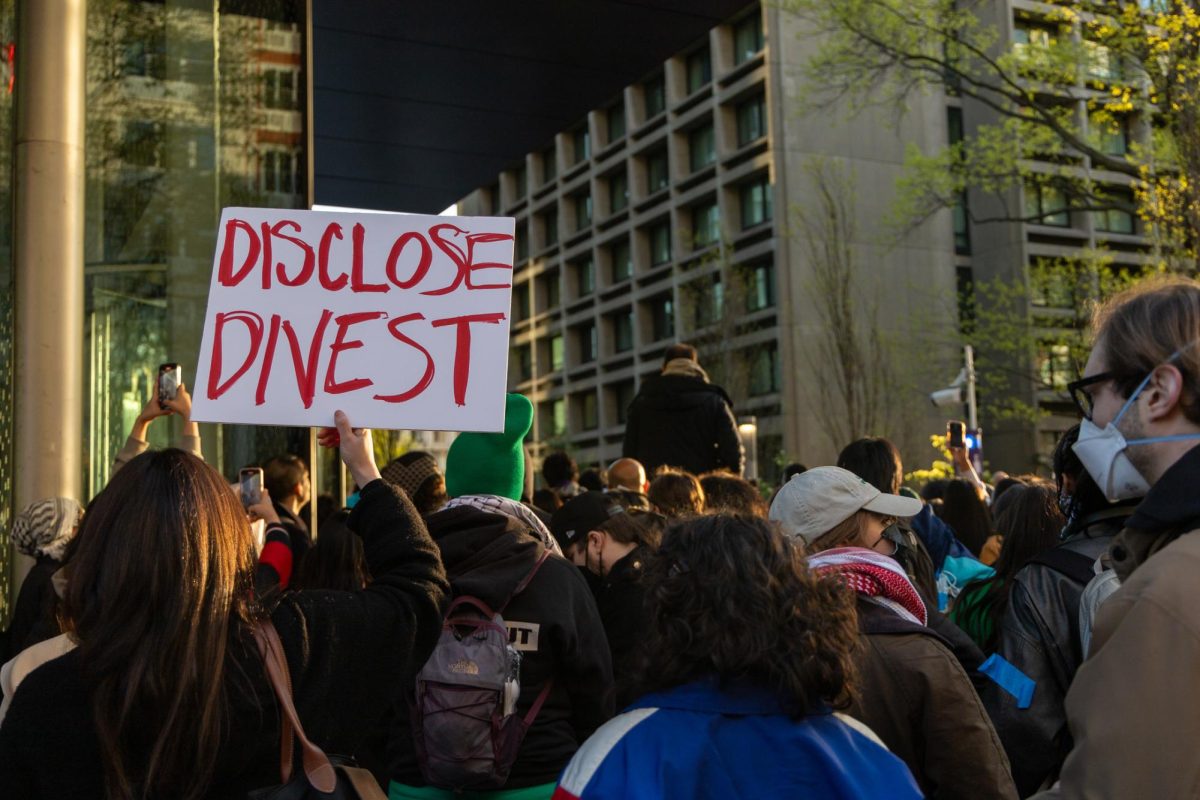On July 3, the Israeli military ordered the family of Muhammed Bhar, a 24-year-old man with Down syndrome and autism, to evacuate their home at gunpoint. During this altercation, a canine from the Oketz unit — the army’s special forces unit of hounds trained to track and attack opposing personnel with vicious biting force — attacked Bhar with no provocation, tearing at his chest, hand and arm until he bled profusely. With the soldiers’ rifles pointed at them, Bhar’s family was ordered to leave him so that a combat medic could treat him. A week later, when Bhar’s family returned to their home, they found him dead on the floor — exactly where Israeli soldiers had put a tourniquet on his bleeding arm and left him to die.
Behind such operations, however, lies an uncomfortable truth: Institutions like Tel Aviv University — a partner university of NYU — play a direct role in sustaining the military-industrial complex that drives such violence. A recent promotional video from TAU proudly showcased its new “engineering war room,” which include streaming facilities to remotely monitor dog-mounted equipment used by the Oketz unit during raids. TAU boasts these war rooms as a way to encourage students — 1,700 of whom have fought in the war since October 2023 and 400 of whom remain on reserve forces — to invent solutions and combat strategies for soldiers on the front line.
Beyond these war rooms, TAU is heavily involved in collaborating with military systems. At their annual technology employment/career fair, TAU hosts companies like Rafael Advanced Defense Systems, Israel Aerospace Industries and Elbit Systems, all of which are arms manufacturers that attend the fairs to recruit students to create weapons used in military operations, such as drones and surveillance technology. In collaboration with Elbit Systems, TAU has launched projects like InnoBit — a program where students develop new technology as part of their academic work. Elbit uses these projects to recruit employees and discover new technologies for military applications. Through this partnership, TAU’s engineering department has developed autonomous drone navigation technologies that have been used in heavily condemned military operations including both surveillance and attacks on civilian populations in Gaza.
TAU’s systemic militarism is longstanding. A report published in February 2009 details TAU’s complicity in Israel’s invasions of Lebanon in 2006 and Gaza in 2008 — from writing Israel’s security policies and war tactics to the direct involvement of university faculty and researchers in military weapon development.
NYU and TAU have a close relationship. Collaborations include past workshops and conferences, a global exchange program allowing TAU students to study abroad at NYU’s global sites and the TAU-NYU Research Cooperation program in which faculty from both universities submit joint academic proposals. NYU cannot maintain ties with TAU as long as the latter maintains ties with the Israeli military sector.
Many members of the NYU community have expressed outrage at the university’s partnership with TAU and its decision to maintain the NYU Tel Aviv site. NYU faculty from the Department of Social and Cultural Analysis passed a resolution of non-cooperation in the fall 2018 semester with the study abroad program in Tel Aviv due to Israel’s discriminatory entry policies. NYU’s graduate student union has repeatedly stated its support for a Boycott, Divestment and Sanctions resolution against Israel.
Scores of universities and research institutions around the globe have ended their partnerships with Israeli universities as part of the BDS movement. In Spain alone, 76 universities have abandoned collaborations with “Israeli universities that are not in ‘compliance with international humanitarian law.’”
TAU’s direct support for Israeli military operations in Gaza is nothing short of encouragement for the well-documented war crimes and violations of international law perpetrated by Israel in the past year. Institutions should be held accountable for aiding and abetting in war crimes when they provide the tools to do so, and NYU’s collaboration with TAU is an endorsement of these atrocities. The university’s global reach comes with a moral responsibility to make sure its collaborations align with its values of human rights and justice. It has, however, become increasingly difficult for the university to argue that it has such commitments to justice over violence when its response to student protests in support of Palestinians was nothing short of a violent crackdown.
Militarism does not belong in educational institutions. NYU’s international partner universities should join it on a mission of intellectual inquiry and societal progress — they should not exploit academic advances to create tools of destruction. Not only should NYU cease collaborations with TAU, but it should also publicly condemn the Israeli university’s role in this senseless violence. NYU cannot maintain ties with TAU as long as the latter maintains ties with the Israeli defense sector.
WSN’s Opinion section strives to publish ideas worth discussing. The views presented in the Opinion section are solely the views of the writer.
Contact Mehr Kotval at [email protected].

























































































































































